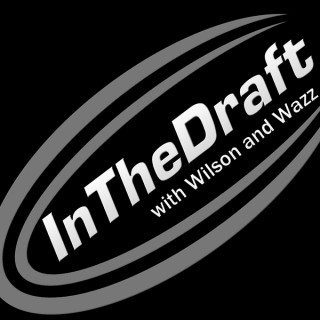Podcasts about gary b
- 108PODCASTS
- 257EPISODES
- 1h 7mAVG DURATION
- 5WEEKLY NEW EPISODES
- Jan 24, 2026LATEST
POPULARITY
Best podcasts about gary b
Latest news about gary b
- How the National Park Service Is Deleting American History New York Times - Jan 23, 2026
- Gary B. Smith to be Appointed to Planet's Board of Directors GuruFocus New Articles - May 30, 2025
- This Is Why We Have Photoshop Cake Wrecks - Feb 21, 2025
- Rethinking Civics Education at a Time of Civics Fragility Balkinization - Apr 26, 2023
Latest podcast episodes about gary b
A New Constitution for Public Education with Jay Gillen and Jamarria Hall
Here is the proposed preamble to a new Constitution for Public Education, conceived by the visionary teacher and organizer Jay Gillen: “Every middle-schooler will have the expectation that when they are in high school they will have a good-paying job, sharing knowledge or skills with peers, younger children, or other people in their communities.” He offers this radical proposal in order to propel a conversation and an organizing focus toward building a broad national consensus about how children should be prepared to grow up with dignity and strength in all of our communities. When he recasts the language of the preamble slightly—“If we could pay teenagers to do things that benefit their communities, contribute to the education and culture of younger children, and incidentally advance their own educations, it would be a good thing”—Gillen argues that we already have enormous sympathy in principle. And so we move on to specific steps we might take and concrete principles we might adopt which are surprisingly practical—and within reach. We're joined by Jay Gillen, author of Educating for Insurgency and The Power in the Room, and Jamarria Hall, a student advocate and lead plaintiff in Gary B. v. Whitmer, the Right to Literacy case that argued the Detroit public schools were “functionally incapable of delivering access to literacy,” and resulted in a $94.4 million settlement in 2023.
Recorded 2026-01-17 03:15:04
Recorded 2026-01-06 06:59:14
Recorded 2026-01-03 02:17:10
Recorded 2026-01-02 23:59:42
Recorded 2026-01-02 06:45:55
Recorded 2025-12-30 08:04:28
Recorded 2025-12-22 05:26:29
Recorded 2025-12-21 09:21:12
Recorded 2025-12-08 06:23:20
Recorded 2025-12-07 01:35:38
Recorded 2025-12-06 05:42:34
Recorded 2025-12-02 08:19:31
Recorded 2025-11-25 15:01:09
Recorded 2025-11-22 00:59:45
Recorded 2025-11-21 07:36:46
Recorded 2025-11-17 06:43:12
Recorded 2025-11-14 01:20:13
Recorded 2025-11-09 02:42:34
Recorded 2025-11-08 06:49:40
Recorded 2025-11-04 03:48:01
Recorded 2025-10-26 06:43:53
Recorded 2025-10-20 04:46:10
Recorded 2025-10-19 01:56:54
Recorded 2025-10-14 07:21:27
Recorded 2025-10-10 07:30:10
Recorded 2025-10-06 07:21:53
Recorded 2025-10-03 08:59:51
Recorded 2025-10-01 05:47:08
Recorded 2025-09-16 03:38:20
Recorded 2025-09-07 03:54:52
Recorded 2025-09-04 16:12:28
Recorded 2025-08-24 00:08:59
Recorded 2025-08-17 08:13:27
RSMS Hour 2 | Denzel Washington's Controversial ESPN Appearance, Nick Cannon on Co-Parenting, and MORE
Denzel Washington's controversial appearance on ESPN's First Take, where he spent five minutes criticizing Dallas Cowboys owner Jerry Jones for the team's 30-year Super Bowl drought, arguing that Jones prioritizes profits over winning. The hosts debate whether Washington's outspoken comments about a wealthy white businessman could potentially harm his career, though they acknowledge everything he said was accurate. The show also covers Nick Cannon's stance against the term "co-parenting," with the father of 12 children arguing that such labels are unnecessary and potentially harmful since parents are simply parents regardless of their relationship status. The hosts disagree with Cannon's perspective, maintaining that co-parenting is an accurate description of shared parenting responsibilities. Regular segments include Gary B's "Color of the Day" featuring Santorini and beautiful black, listener wake-up calls from various cities, and Jeff Johnson's political commentary covering federal intervention in Washington D.C., Democratic governors pushing back against Republican redistricting efforts, and the escalating political tensions nationwide. See omnystudio.com/listener for privacy information.
Recorded 2025-08-14 13:55:49
Recorded 2025-08-08 06:30:33
Recorded 2025-08-06 05:05:25
Recorded 2025-08-04 20:07:29
Recorded 2025-07-30 09:49:38
Recorded 2025-07-26 07:03:56
Recorded 2025-07-19 01:56:32
Recorded 2025-07-13 00:31:24
Recorded 2025-07-12 09:31:58
Recorded 2025-07-10 09:08:34
Recorded 2025-07-07 10:31:20
Recorded 2025-07-01 05:53:53
Recorded 2025-06-22 01:44:49
Recorded 2025-06-14 23:59:49
Recorded 2025-05-03 00:52:27














